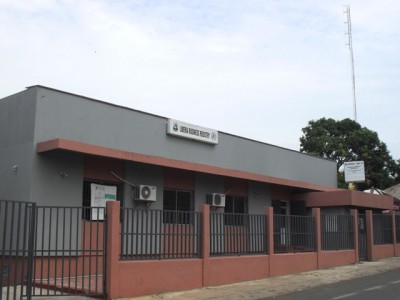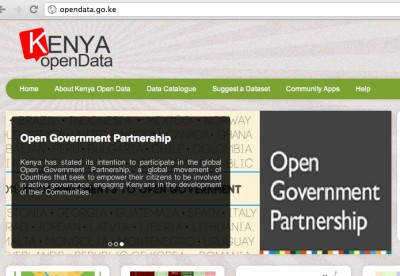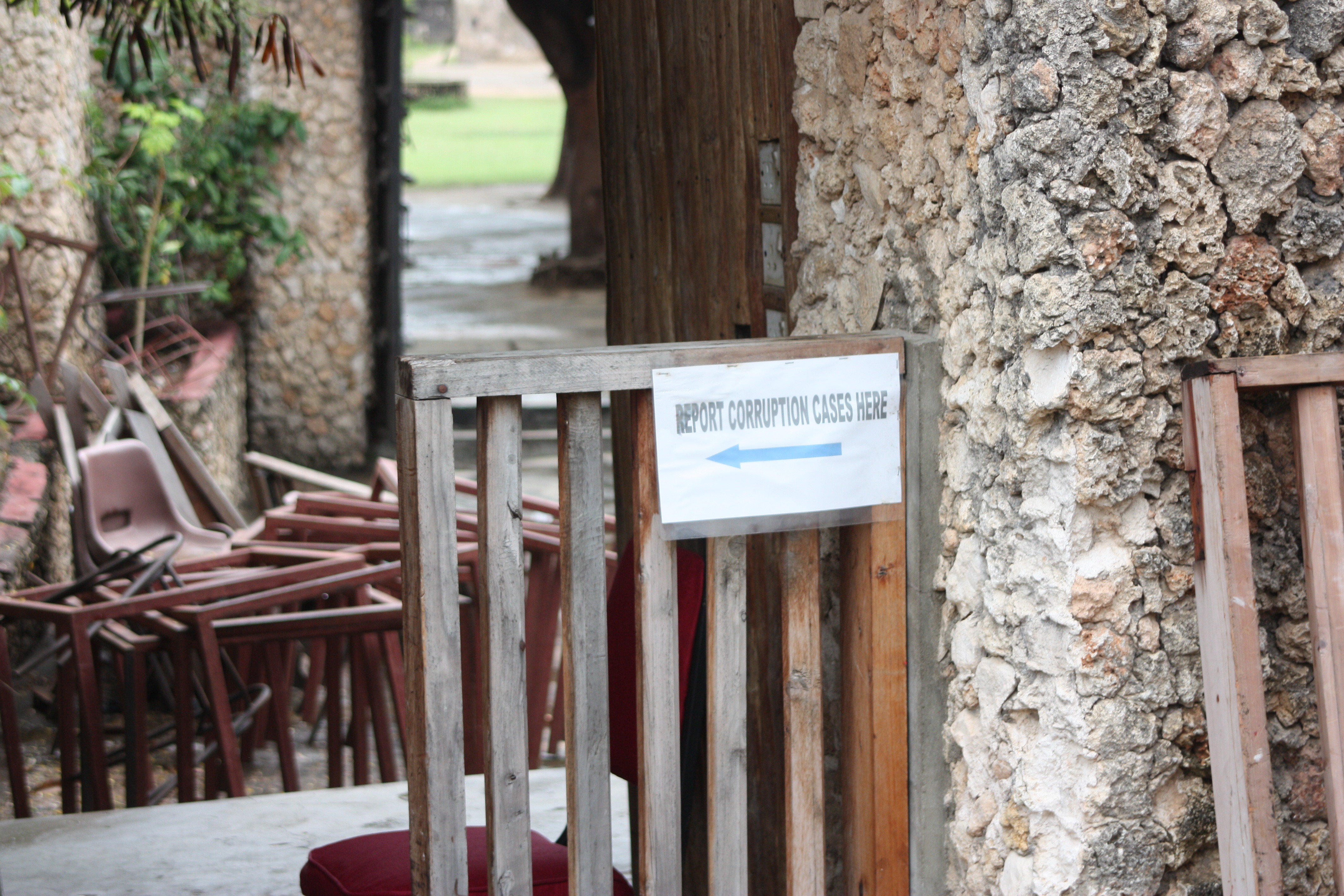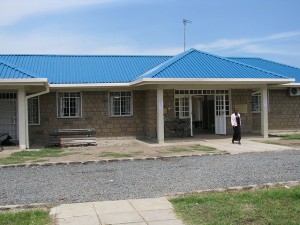Archive for the ‘open data’ tag
Innovating for the People: How Africa is using Technology for Better Governance.
This post is the forth and last article in a four-part series on Africa: The Present Frontier.
On his first day in office, US President Barrack Obama signed the Memorandum on Transparency and Open Government start the process that led to the Data.gov we know today. Within 3 years, other governments had followed suit around the world with many attempting to do it and others getting past the hurdles to finally launch. The first one in Africa to start the process and deploy an open data portal was Kenya. Other countries are expected to follow suit in the coming months and years.

The Liberia Business Registry which provides an online platform for business registration. Image source: http://www.lbr.gov.lr/
The story of governance in Africa though punctuated by war, coups de etat and not-so-democratic elections is also full of stories of democratic progress and innovation. Technology is playing a role on the demand side of governance with citizens taking to technology platforms to amplify their opinions and demand better services from governments. It’s playing a big role on the supply side as well with governments adopting e-government and making progress along the path to open government and turning Africa into an attractive place to live in and do business.
The IFC in its Doing Business report for 2012 found that every single East African country had made at least one reform aimed at making them an attractive investment destination. Areas such as electronic submission of documents for businesses establishing a presence are important for governments in the East African Community. Sadly, despite the reforms, the 2012 Doing Business ranking show only 2 out of 5 of the EAC states improved their rankings with all the others dropping between 2 and 4 places from 2011. Rwanda remains the 3rd best country to do business on the continent after Mauritius and South Africa at its current 45th position in the rankings. Kenya, at 109, is ranked better than Nigeria, Brazil and India.
The improvements in the EAC have resulted in stronger legal institutions but maintained expensive regulatory processes. However, as these governments implement e-government initiatives and make progress along their respective roadmaps, the costs for businesses and individuals where interactions with government are concerned will reduce and play a role in improving the business environment in the region. This is key to creating employment, reducing poverty, improving the quality of life and growing a country’s GDP. Here are some examples of how countries in the region are using technology to serve citizens and protect the gains made in opening up the democratic space and improving the business environment.
- Kenya Revenue Authority’s (KRA) Portal. Interacting the revenue authority almost always meant a great deal of standing in line and loss of valuable man-hours lost. This created an environment for intermediaries and corruption to thrive resulting in the loss of millions of dollars in revenue every year. The authority implemented a series of measures to make customs, excise and value-added-tax processes convenient, less costly and more water tight through an online platform resulting in a level playing field for business and less citizens standing in line for days to get things done. It also put those pesky ‘brokers’ hanging around government offices offering to ‘help’ out of business.
- Tanzania Revenue Authority e-Filing and mPayments. In a move that created a new precedent in Government to Citizen (G2C) services in sub-Sahara Africa, the Tanzania tax authority implemented a mobile payments tax system which makes it unnecessary for citizens to visit their offices to pay taxes.
- Rwanda Mobile-enabled Driving license applications. In an effort to reduce the amount of time it takes to apply for a driving license in Rwanda, the government introduced a mobile-enabled service that allows citizens to send a text message to the platform and receive a registration number, the first step in the process, cutting the process from 4 months to 45 days.
- Liberia’s Online Company Registry. Liberia’s company registry allows citizens to register a business without having to make trips to government offices usually a standard practice with this bureacractic process.
While some have already done so, a number of countries in sub-Sahara Africa are on the path to introducing electronic lands registries, integrated financial management systems and electronic business registration in an effort to improve service delivery in their government to government (G2G) interactions and G2C / G2B services.
The old Africa is almost no more. There’s a new Africa emerging. One where stronger institutions exist, better legislation, transparency and citizen participation in governance is the norm. The new Africa is here.
Corporate Big Data Should Team Up With Public Open Data
In the early days of the Obama administration, the idea of open data was transitioned from lofty ideal to a reality pushing huge amounts of government-held data onto public portals. What started in the US, however, became a global process. Many governments have since committed themselves to provide data to their citizens through similar portals and to abide by the principles of open government.
This coming June, Kenya will celebrate one year of open data and a portal that has grown to over 220 datasets and a total of 500 data elements (datasets, documents, charts etc). A number of interesting mobile and web apps have been created that utilize the data such as MedAfrica. Although there have been signs of some cool apps, the number of apps I expected one year on haven’t quite materialized. However, 12 months is a short time and the next couple of years could very well see the rise of novel applications and highly innovative ways of communicating public data to citizens or using it to add value to commercial apps.
Now that the government is publishing data online and will continue to do so as legislation is enacted to further reinforce this, what’s next? I say MORE DATA. Not just government data. It’s time for corporate big data to join the party. The private sector has a wealth of data gathered everyday from citizens around the country. The level of intelligence contained in corporate data is so vast, fresh and detailed I’m certain the staff at the national bureau of statistics salivate at the thought of getting their hands on it. So do local small businesses and start-ups. Although the data held by a single corporate entity on its customers may be detailed and extremely valuable, it becomes even more valuable when taken together with data from other corporate entities. Taken together with public open data, this data is priceless.
Corporate open data could have immense impact on consumer/citizen facing organizations in both for-profit and non-profit sectors. Here are some possibilities that come to mind
- Banking data e.g. insights into average deposit size by county, number of business accounts, penetration of banking services by geographic location and population (percentage of population with bank accounts).
- Consumer goods sales e.g data on consumption of goods by location, trends, average price of most popular product type.
- Telecommunications e.g. Airtime sales by location, average size of airtime purchase, average call length by location, average number of text messages per person by location, number of subscribers accessing the internet via mobile or via other devices etc
- Disease prevalence e.g. data from private healthcare facilities could provide additional information on number of cases diagnosed by disease, location and trends beyond the diseases that are most commonly observed at public facilities.
In an age where information is king, helping communities empower themselves and turn their fortunes around requires access to the right information. Information that allows them to understand why their counties attract low investment, or whether they have the infrastructure to leverage for economic development, or what their political leaders can do to improve their quality of life. The answers to these and many other questions lie not just in government data but in corporate data as well.
Empowering citizens to become more active in their own governance is a key principle of open government and one which open data reinforces well. Empowered citizens make empowered customers and (I’m pretty certain) makes for good business somehow. It is possible that corporate social responsibility on this side of the industrial age may include providing data to the public that could help them change their world. Isn’t that a possibility East African businesses should consider investing in just as their governments are doing?
From Open Data to Open Action
“The thing to remember is, Human beings do not socialize in a completely random way. There’s a tangible reason for us being together, that ties us together. Again, that reason is called the Social Object.” Hugh MacLeod
The Open Government Partnership declaration commits members to support civic participation in addition to making data on government activities open to the public. In Africa, Kenya made history as the first country in sub-Sahara Africa to implement an open data initiative giving citizens unprecedented access to valuable datasets. 40 countries, 5 of them African countries, have since signed up to the OGP and I believe they are at different levels of following through on the spirit of the declaration.
The value of open data to citizens is unquestionable. This year, Kenyan software developers have launched mobile apps that leverage open data to provide services to citizens. They have mostly been in the healthcare and agriculture verticals but services in education and entertainment have begun to emerge. These are very encouraging signals coming out of a country that only a decade or two ago made it almost impossible for citizens to know what the government was doing. These apps may not have been possible without access to the huge amount of data the government holds and is now making available to software developers.
However, we shouldn’t think of only mobile and the web when we talk about leveraging open data. “To turn raw data into ‘edible’ content that citizens can consume and make decisions with” should be the overarching objective for anyone looking to improve citizen participation in governance through open data. This edible bits of content should be easily consumed on the now ubiquitous mobile devices in Africa as well as on old fashioned news print and billboards. Jyri Engestrom refers to social networks as “object-centered sociality” meaning people connect because they have a reason to and that reason is usually an object (in the loose sense of the word). Moving from mere intentions to action may start with little more than an object (physical or otherwise).
Will Open Data Give Rise to Great Stuff?
There’s a health center in my village. I don’t know how many health care workers have been assigned to it, how much money it was allocated in the last fiscal year, how many people it serves or who’s in charge. I don’t know what the mortality rate is in my county or how we measure up when compared to the neighboring counties. If nothing changes, I probably never will.
Tweet

